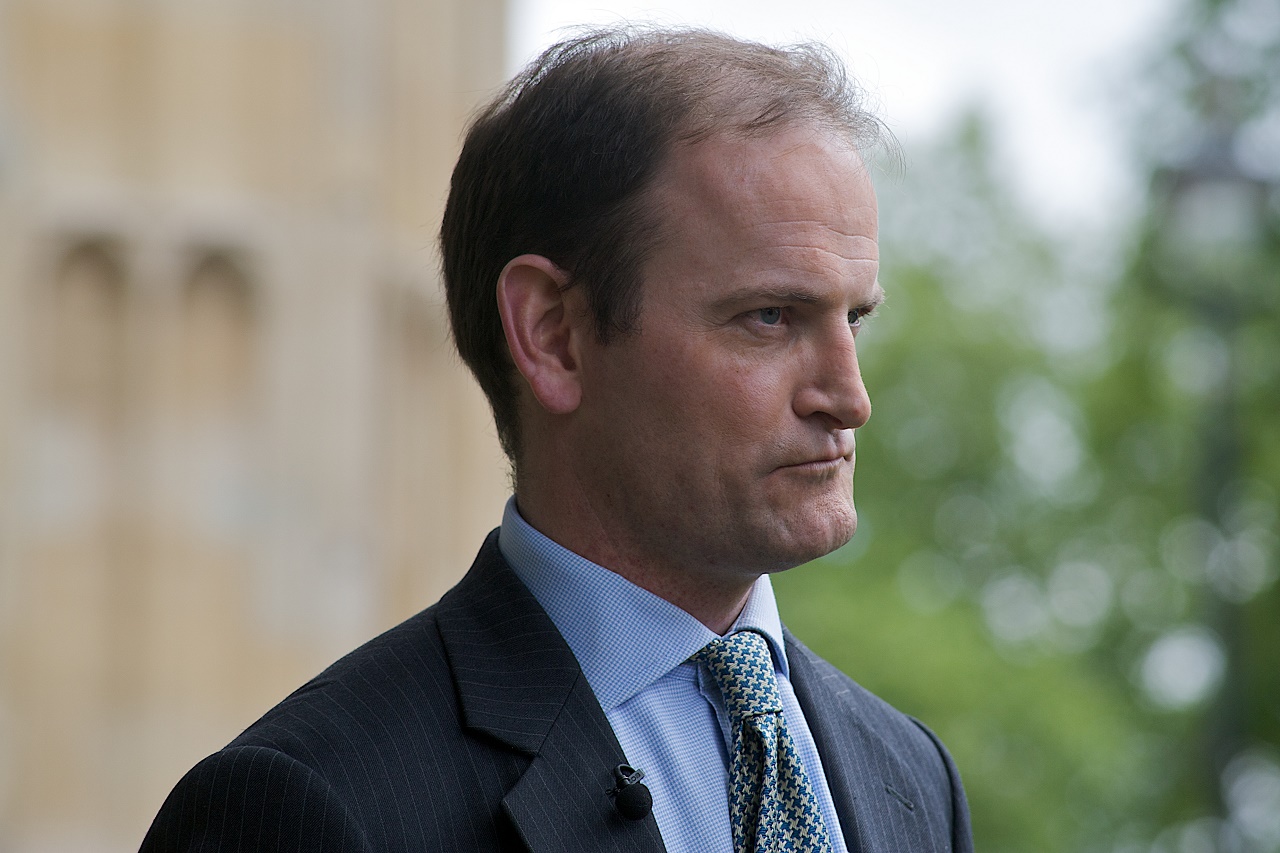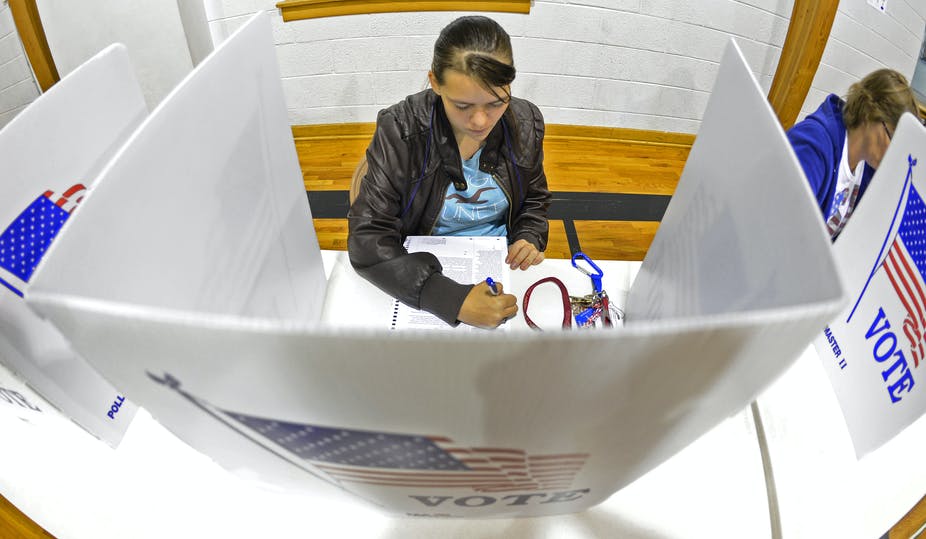Dr. Michael Skey reflects on what Douglas Carswell’s election as the first UKIP member of parliament means for British Politics.
Did you hear the one about the bloke called Doug who got elected to Parliament? But apparently, it’s no laughing matter. At least, not for the Tories who saw a former colleague collect 60% of the vote on behalf of his new party and must now be wondering which of their other representatives might jump ship next. And certainly not for Labour either who narrowly avoided a calamitous defeat at UKIP’s hands in the formerly safe seat of Heywood and Middleton. And, perhaps, the less said about the Lib Dem’s, the better, given that they failed to even retain their deposit in Clacton.
But all sniggering aside, what do Thursday night events really tell us about politics in this country? Do they signal a ‘seismic’ shift, ‘a new chapter’ and a reshaping of the political landscape or is it just more of the same with a combination of angry and ‘stay-at-home’ voters looking to give the major parties a bloody nose before returning to the fold come next May, when it really matters?
The first, and perhaps most obvious, thing to say is that it gives UKIP a modicum of credibility in having a real-life MP in the Houses of Parliament, as opposed to one dynamic, media-savvy leader and a bunch of no-name councillors who at times seem to be vying with each other to come out with the most ridiculous statements imaginable, rather than, say, getting on with their jobs.
The fact that Carswell is a relatively smooth political operator, notably when compared with pretty much anyone else in UKIP who has a public role, also matters. For instance, his more thoughtful views on, say, immigration, means that he may be able to lend the party some much needed gravitas and, perhaps, in the process encourage further defections (both voters and politicians) from those who might otherwise have been scared away by UKIP’s more rabid elements.
As others have noted, however, while Carswell’s victory was impressive, it was also not unexpected. He was a well-regarded constituency MP and is addressing a local population who are pretty much UKIP’s target demographic – white and with a large proportion of struggling working-class families and pensioners. As The Guardian’s John Harris has documented in recent reports, Clacton is part of a wider uprising in the east of England that has, to some extent, gone un-noticed amidst recent debates around devolution and the like.
If Carswell’s election does, then, signify something new for UKIP, he still remains, for now, a solitary figure in the House of Commons. He may yet still complicate matters for Farage, in particular, given his relatively high profile and, apparent, unwillingness to support every rabble rousing pronouncement the ‘dear leader’ makes.
But what is also interesting about events this week is how little has changed.
Commentators have almost been unanimous in their observations that the result in Yorkshire, not Essex, was of far greater significance in that Labour’s candidate only scraped home by a paltry 600 votes. Yet, psephologists have been arguing for some time that while UKIP represents a greater threat to the Tories, notably in key marginals, it also appeals to substantial numbers of disaffected Labour voters as well. It’s worth noting that UKIP’s surge in Heywood and Middleton was the result of two factors. One it took votes from the Tories and Lib Dems. Two, while Labour increased its share of the vote (by a whopping 1%!), the turn-out was abysmal with two thirds of the electorate staying at home. This means the party is struggling to motivate a constituency it once considered its bedrock in an era defined by sweeping cuts to public services and growing inequality. The problem for Labour is that while it’s happy to talk about these cuts (the campaign in Heywood focused on the NHS, for instance) and to fiddle at the edges with policies relating to the minimum wage and public services, it remains almost silent on the issue that is driving support for UKIP across the country and this is something else that hasn’t changed one bit.
As I’ve argued elsewhere, UKIP’s support is based on two main factors. First, is the still palpable anger towards the political classes, seen to be distant, bland and unconnected to people’s everyday concerns and anxieties. This is where Farage’s ‘everyman’ schtick has been particular effective in garnering support. But this anger towards the political classes is not the main issue that has caused Labour voters to stay at home or Tories to turn to UKIP.
As polling data and recent newspaper reports have noted there are grumblings about the economy and growing financial insecurity has to be a factor. However, this isn’t UKIP supporters’ main concern. Indeed, they seem happy to overlook (or, at least, unwilling to acknowledge) that UKIP’s neo-liberal agenda won’t change much, if anything, for lower-income families and workers. Instead, they are concerned about immigration, which more broadly means the ways in which British (and, perhaps, increasingly English) life are changing. In other words, the UKIP ‘backlash’ is primarily fired by a sense of anxiety among a fairly substantial group of people who largely consider themselves to be at the heart of the nation’s life and culture and now feel that their status is being challenged. And this perceived challenge comes from two key sources. One, it comes from a range of people (ethnic minorities, recent immigrants) who are not considered to belong as much to the nation but, at the same time, are now perceived to have greater agency and power. Two, it comes from a liberal elite who aren’t willing to recognise these hierarchies of belonging and the entitlements that are seen to flow from them (I belong more, therefore I deserve more). This refers both to social and economic benefits (jobs, housing, welfare) but also what we might call psycho-social benefits. The right to feel comfortable and secure, the right to decide how the country is managed, the right to comment on the actions of ‘others’.
Farage’s recent grumble about hearing foreign voices dominating train conversations in London perfectly encapsulates this idea. The common refrain among UKIP voters or sympathisers of ‘we want our country back’ is another. This sense of proprietary over the nation is striking and should really be at the heart of any analysis of UKIP’s support. Progressives might not like these sentiments but they can’t simply wish them away and they certainly won’t engage disaffected groups by dismissing them.
Instead, what is required is a statement that all of the mainstream parties have been unable or unwilling to offer for some time, perhaps since the heady days of Blair’s ascent. It’s a statement that honestly and openly acknowledges Britain’s place in the world. It’s a statement about the future that rather focusing on ‘hard working families’ or ‘togetherness’ or other similar platitudes, offers people a sense of where Britain is headed as a country that is growing increasingly diverse, in a world that is growing increasingly connected. Once we’ve had that conversation, it might just be time to start addressing the growing inequality that has fragmented the country for three decades.
Until then we’re left with a political system where the two main parties try to appeal to voters on the basis that, at least, they’re not ‘the other lot’.
Until then, resentment and anger will fester and UKIP will benefit. Don’t hold your breath.
Dr. Michael Skey is a lecturer at the University of East Anglia
Image credit: Wikipedia





